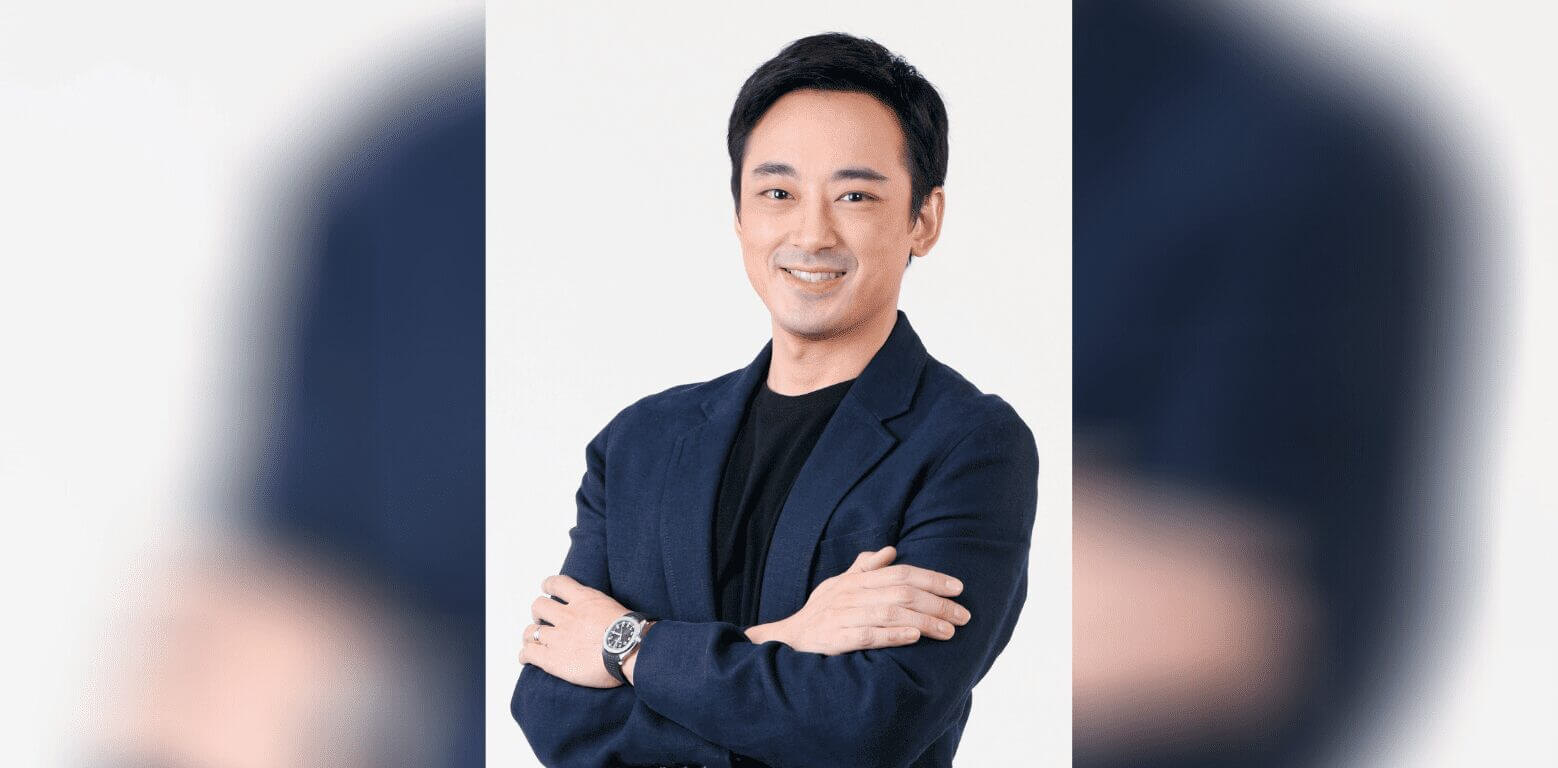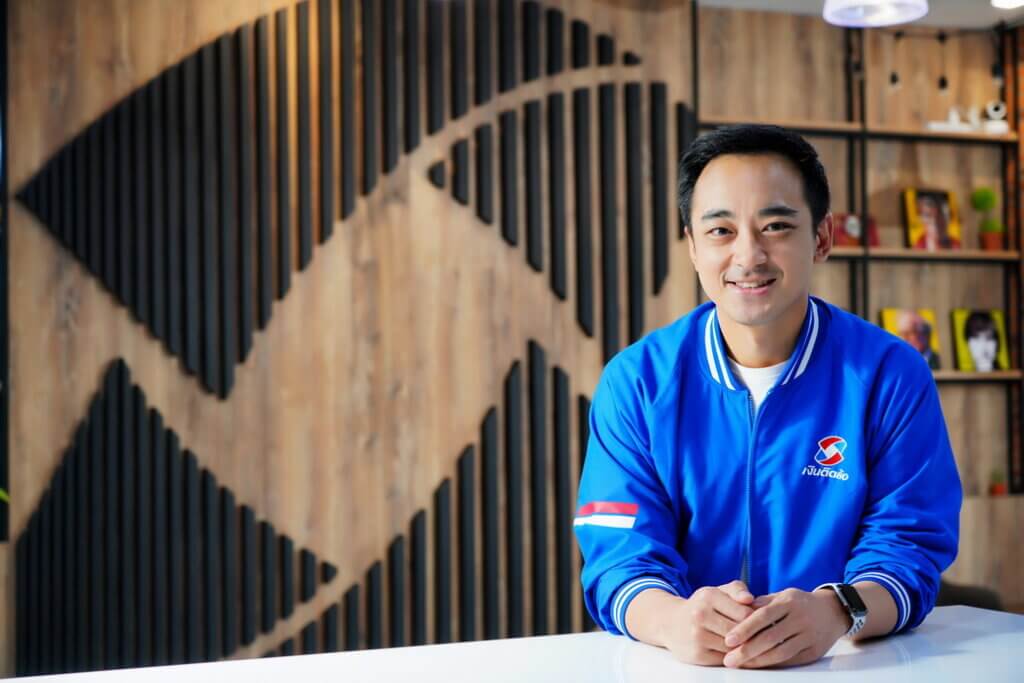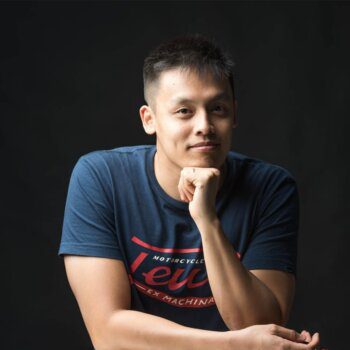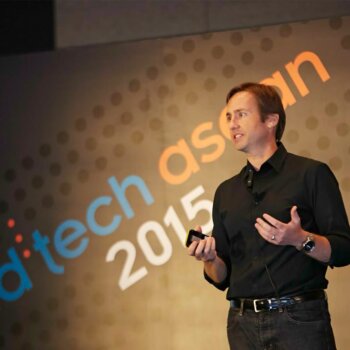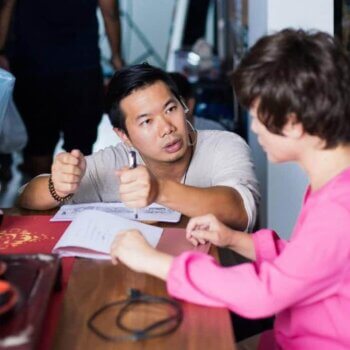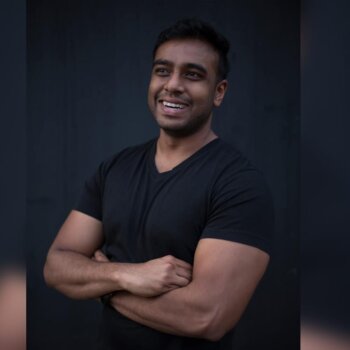Abandoning his hopes of studying for an MBA, Piyasak Ukritnukun has turned a relatively small lending company into a billion dollar financial inclusion company.
What’s your story?
I was born in the US and came back to Thailand to study at Thammasat Business School in 1999. After college, I spent two years with Boston Consulting Group (BCG) before joining AIG’s Asia Pacific M&A team where I worked on deals in the region. One of the transactions we closed for AIG was a small upcountry lending company in Thailand called Ngern Tid Lor (“NTL”). I transferred from the region team to become NTL’s Chief Marketing Officer at the age of 26. In 2013, I was promoted to Managing Director on my 32nd birthday. Since then, we have grown from $300 million loan book to $1.5Bn and have transformed into a purpose-driven and values-based financial inclusion company. I never got an MBA and will probably never move back to the US per my original plan.
What excites you most about your industry?
Innovative impact. Most people think of nancial services incumbents as antiquated bricks-and-mortar players waiting to be disrupted. That’s largely true. Fortunately, we have invested heavily in digital transformation and analytics over several years and have only recently started accelerating releases of new products and delivery channels that are purpose-built for financial inclusion. It’s exciting to push the barriers and introduce new ways of providing financial access in a space that has traditionally been led by local moneylenders and insurance brokers that are family-owned, subscale, lack institutionalized transparency, and responsible lending practices. There is tremendous opportunity to introduce good governance, risk management practices and technology in creative ways to consolidate the market while upgrading it to be more fair and inclusive.
What is your connection to Asia?
I’ve spent half of my life in the US, and the other half in SEA. I really appreciate Asia because of the interconnectedness of the economies and the diversity of cultures. These factors help provide a broader outlook. Looking back at my time growing up in the suburbs in the US, my experience was definitely more homogeneous.
Favourite city in Asia for business and why?
Bangkok is my natural choice because I’ve spent most of my career here. The familiarity with local customs, legal framework and regulatory landscape definitely enables me to be more comfortable professionally. Plus, on weekends it’s easy to escape to a nearby beach or mountain view resort.
What’s the best piece of advice you ever received?
In the early stage of my career, a former CEO of our financial group told me to “always take the harder path.” When I am faced with a challenge on my current path and alternative routes, I find this advice useful. My experience has confirmed that the path of least resistance seldom leads to great achievements.
Who inspires you?
This is a tough one. I spend a lot of time reading that can help me learn from those who’ve come before. I think this is much less costly than learning from my own experiences and mistakes. At different times I’ve been inspired by Barack Obama, Steve Jobs, Jack Welch, Lou Gerstner, Jeff Bezos, Jony Ive, Elon Musk, Warren Buffett, Tom Brady, Michael Jordan, Ray Dalio, and Simon Sinek. I’ve taken lessons from all of these titans across politics, business, and sports and tried to apply them to personal and professional life.
What have you just learnt recently that blew you away?
I just read “The Good to Great” series of books by Jim Collins and The Bezos Letters by Steve Anderson. They mention a concept they call the flywheel, which was foreign to me. I was astounded by how elegantly simple the concept was, and yet how challenging it was to draw on paper the flywheel of this company I’ve been running for 7 years. What’s remarkable is that once the correct flywheel is identified and articulated, it can be used to create so much alignment and clarity within the organization. It’s been a long time since I came across a business concept that excited me enough to lose sleep in trying to figure out how to apply it.
If you had your time again, what would you do differently?
So far, I don’t have any significant regrets that would warrant a do-over. I guess I could have saved more and partied less when I was younger. I sometimes wonder how many brain cells I’ve destroyed while drinking in college
How do you unwind?
I consider myself a fairly extreme introvert, so I like to be in places that are quiet and not too populated. I relax by going for a run on the treadmill or heading to one of Thailand’s many beach resorts. I always get a room with an ocean view.
Favourite Asian destination for relaxation? Why?
Niseko, Japan. One of the sports I really enjoyed whilst growing up in the US was skiing during the winter season. I love inhaling the crisp, fresh mountain air while sitting on the chairlift. Niseko has great powder, and a quaint town at the base of the mountain that reminds me of my favorite ski resort in the US, which is Vail, Colorado.
Everyone in business should read this book:
Thinking Fast, and Slow by Daniel Kahneman. This book basically taught me that humans are inherently flawed when making decisions because we are influenced by cognitive biases. If success in business is about making good decisions, communication, persuasion, and leadership, then this book will help you recognize not only your own biases, but also the drivers of other people’s decisions. That recognition should lead us to make fewer mistakes for ourselves and help us develop more empathy and understanding the flaws we think we see in others. In the end, I think it has helped me become less imperfect.
Shameless plug for your business:
While externally NTL looks indistinguishable from many local branch-based lending businesses, behind the scenes our professional and experienced management team has built technology- and data-driven lending and insurance brokerage platforms with the goal of promoting financial inclusion and social impact. As the market leader in title lending, we are the innovative incumbent determined to raise industry standards by setting the bar high on transparency, technology, company culture, and customer value. Over the past four years, we have taken our lessons learned from our lending business and deployed our substantial resources toward disrupting insurance distribution in Thailand. Our goal goes far beyond weathering near-term digital disruption; our aim is to lead the way in shaping the development of the ecosystems in which we operate.
How can people connect with you?
I actually try to stay disconnected from mobile devices as much as possible but I will periodically check my LinkedIn account.
https://www.linkedin.com/in/piyasak-ukritnukun-1846b1/
https://www.linkedin.com/in/piyasak-ukritnukun-1846b1/
—
To hear how entrepreneurs around the world overcome their challenges, search your favourite podcast platform for ‘CallumConnects‘ to hear a 5-minute daily breakdown.

Callum Laing is an entrepreneur and investor based in Singapore. He has previously started, built, and sold half a dozen businesses and is now a Partner at Unity-Group Private Equity and Co-Founder and CEO of MBH Corporation PLC. He is the author of three best-selling books ‘Progressive Partnerships’, ‘Agglomerate’, and ‘Entrepreneurial Investing’.
Connect with Callum on Twitter and LinkedIn
Download free copies of his books at www.callumlaing.com
